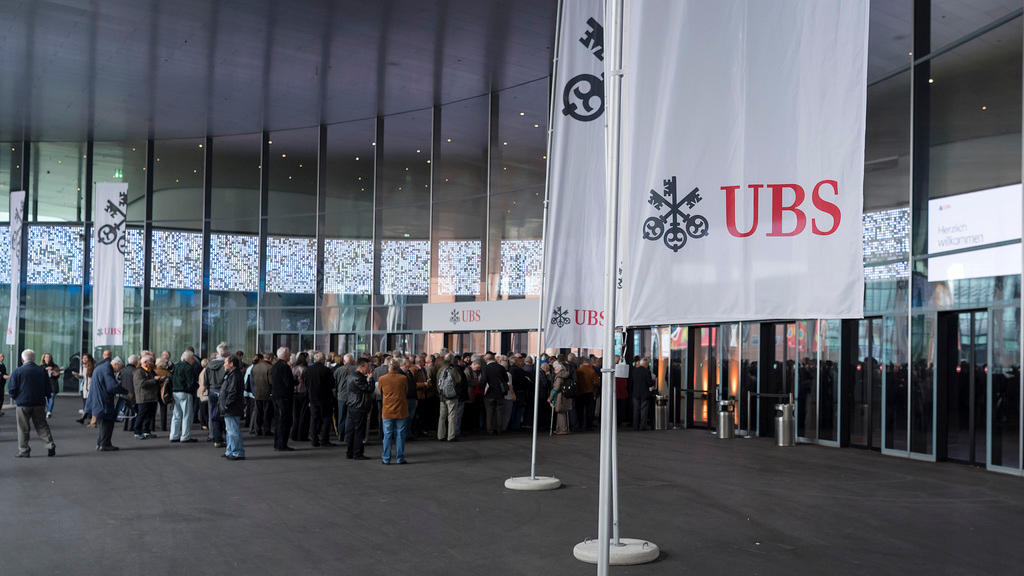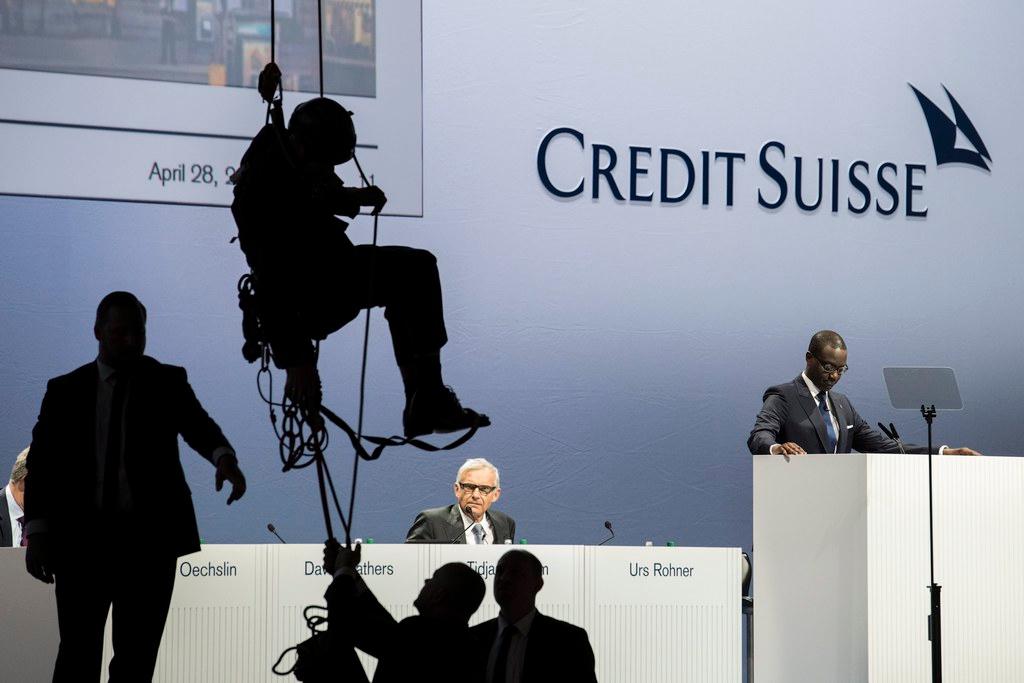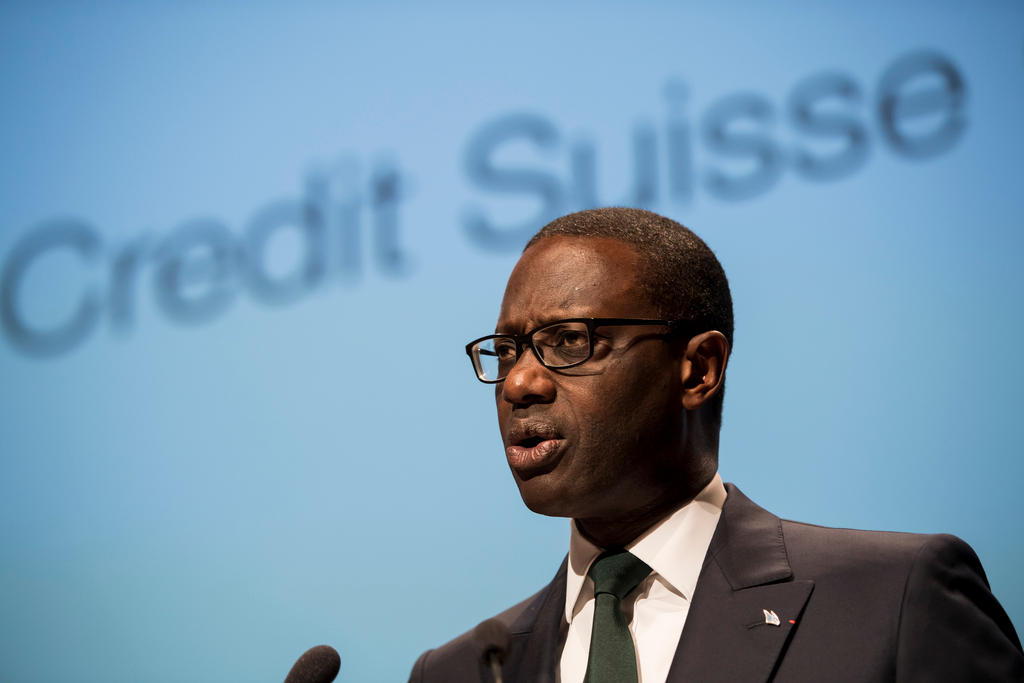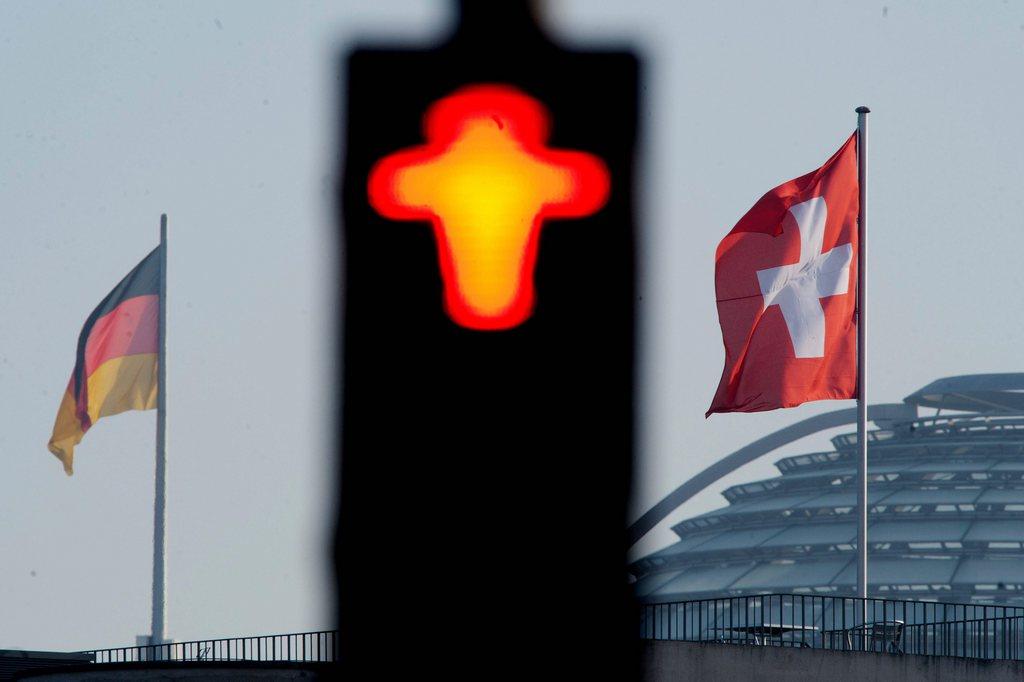UBS escapes shareholder rebellion fate of rival

UBS shareholders overwhelmingly approved executive bonuses at the bank’s annual general meeting on Thursday. Why such a difference from the Credit Suisse shareholder rebellion seen just one week ago?
Both Swiss banks have experienced hard times since their heyday before the financial crash. The shares of both banks have been trading in similar territory (CHF15-17) in recent months from 2007 highs of CHF89 for Credit Suisse and CHF75 for UBS. The dividend payouts are also similar – 70 cents per Credit Suisse share and 60 cents at UBS.
Legal problems continue to dog both, but this is nothing new for the banking sector globally since the 2008 financial crash. Recent reports of UBS coming under investigation for allegedly manipulating the United States bond market can be added to a long list of product mis-selling, market abuses and tax evasion offences. The same can be said for Credit Suisse and other major banks throughout the world, making such headlines less of a story for institutional investors.
If anything, UBS faces the greatest legal uncertainty at the moment. Hanging over its head are an ongoing tax evasion case in France and the expectation of a multi-billion dollar bill to settle US claims of mis-selling mortgage-backed securities. Last year, Credit Suisse stumped up $5.3 billion in a similar probe, forcing it to accelerate plans to raise more capital from the markets.

More
Greenpeace storms Credit Suisse shareholder meeting
Large-scale investors (pension funds, private equity firms, sovereign wealth vehicles and hedge funds) are in constant touch with both banks, but these discussions take place behind the scenes. But shareholder discontent occasionally becomes public during AGMs – especially since Swiss laws changed in 2013 to give them a greater voice over executive pay.
‘Wrong kind of employee’
Last week, shareholders exercised their right to object against Credit Suisse, forcing the bank to backtrack on proposed bonus packages for top bosses. Chief executive Tidjane Thiam and other executives agreed to slash their bonuses by 40% while the board said they would no longer ask for a pay rise this year. Despite that, some 40% of shareholders at the AGM voted against the 2016 compensation report in a consultative vote.
By contrast, 88% of UBS shareholders approved its 2016 executive pay awards, despite profits at the bank slumping nearly 50% last year. Actares, an organization representing small shareholders, recommended its members vote against the pay plan that cut bonuses only 17% from 2015. “Such monetary incentives are anything but sustainable and only attract the wrong kind of employee,” the group said in a statement, also pointing out that the bank probably faces huge legal bills in the near future.
Speaking at the bank’s AGM on May 4, UBS CEO Sergio Ermotti admitted that the CHF3.9 billion in legal bills racked up since 2012 had cost shareholders. Without these costs, the bank could have paid out higher dividends, he said.
Positive returns
So why did large shareholders not also rebel against UBS? The answer lies in the relatively good performance of the bank compared to Credit Suisse. While profits fell 48% last year, UBS still managed to report a CHF3.2 billion positive sum. Credit Suisse recorded yet another heavy loss in 2016 (-CHF2.7 billion), not a lot better than in 2015.
What does that mean for shareholders? A loss of CHF1.32 for every Credit Suisse share issued (compared to a 86 cent gain for every UBS share).
Another standard measurement of shareholder value is return on equity (RoE) which gives the ratio of profit to the total value of all shares. This also makes for grim reading for Credit Suisse shareholders (-6% in 2016) compared to UBS (+6.1%).
Big financial players who invest a lot of money in the shares of companies expect positive returns, particularly when other investment opportunities have been curtailed by low interest rates.

In compliance with the JTI standards
More: SWI swissinfo.ch certified by the Journalism Trust Initiative












You can find an overview of ongoing debates with our journalists here . Please join us!
If you want to start a conversation about a topic raised in this article or want to report factual errors, email us at english@swissinfo.ch.